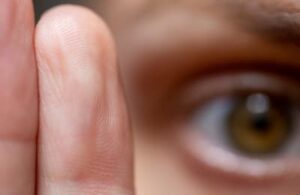Accelerated Resolution Therapy vs. EMDR: Which Trauma Therapy Is Right for You?
Trauma affects millions of people worldwide, and finding the right therapy can make all the difference in the healing process. The traditional method of addressing the treatment of trauma has been cognitive behavioral therapy (CBT). In CBT, an individual is encouraged to look at the events that took place in their lives and how those…
Can Neurofeedback Help With Weight Loss And Obesity?
Neurofeedback, a type of brain training, is gaining popularity as an effective treatment for a variety of mental health disorders, chronic pain, and anxiety disorders. But can it also help with weight loss? The short answer is that neurofeedback may help with weight loss by rewiring the brain and improving brain function. Neurofeedback training is…
How Long Does It Take To Recover and Heal From Trauma?
Trauma can have a lasting impact on a person’s physical and mental health, making it difficult to resume everyday life. The time it takes to recover and heal from trauma varies greatly depending on the individual and the severity of the trauma. Some people may experience significant improvement within a few months, while others may…
Tips On Being In A Relationship With Someone With Depression
If you’ve found yourself in a relationship with someone who experiences depression, it can be challenging to know how to help them. It is important to remember that everyone experiences depression differently and there is no one-size-fits-all approach when it comes to providing support. Whether you’re in a romantic relationship or close friendship with someone…
How Does Addiction Affect Family And Friends?
Addiction is an insidious disease that doesn’t just impact the person struggling with it. It creates a ripple effect in their lives and affects those they love, too—their family members and friends. There’s no denying how difficult it can be to watch someone you care about battle an addiction while trying to maintain your own…
Is Addiction Hereditary Or Considered A Genetic Disorder?
As a counselor, I have had the privilege of working with many individuals who struggle with a substance use problem such as drug abuse and alcoholism. Addiction is a complex and multifaceted issue that can have a profound impact on a person’s life. Addiction is considered to have a genetic component, but it is not…
How To Prepare For A Couples Counseling Session: 17 Tips
Couples counseling can be a great step towards improving your relationship, but it’s important to come into the first appointment with an open mind and heart. If you have thought about seeking out professional help for your relationship, there are some simple things you can do beforehand that will get you off on the right…
Can Neurofeedback Treatment Help With Depression?
Clinical depression is a prevalent mental health disorder affecting millions of people worldwide, with a range of symptoms that can significantly impact a person’s daily activities. It can be caused by a biological predisposition or a traumatic life event. Depression symptoms can include low self-esteem, difficulty concentrating, fatigue, sadness, and loss of interest. Major depressive…
Addiction Is A Family Disease: Here’s How Recovery Can Help
Addiction is often thought of as an individual problem, but it can also have a major impact on families. In fact, some experts believe that addiction along with mental health disorders is a family disease. What does addiction is a family disease mean? – It means that when someone in a family has an addiction,…
An Overview: What Does Neurotherapy Treat?
Neurotherapy is a therapeutic technique that we’ve found to be especially useful in treating our clients with certain conditions, like depression, anxiety, and sleep issues. It works by balancing the brain’s electrical activity with its own natural frequencies. Since neurotherapy doesn’t come with the same side effects as other treatments (such as medication), I have…









